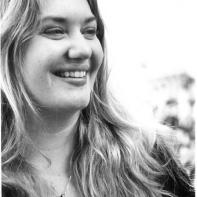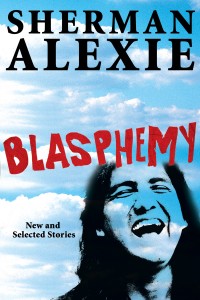 One of the first (of many) rejections of my novel Revenge of the Teacher’s Pet was from an editor who wrote, “I fear that not even Nabokov’s literary skills could make Mr. Portwit into a likable character.” The character he referred to was Dale Portwit, one of the protagonists of my novel. Mr. Portwit is a 50-year-old middle-school teacher who is, to put it kindly, self-serving, obnoxious, and stubborn. One of his quirks, for example, is insisting that everyone refer to him as “Mr. Portwit” instead of “Dale” because he believes “first-name usage is a privilege, not a right.”
One of the first (of many) rejections of my novel Revenge of the Teacher’s Pet was from an editor who wrote, “I fear that not even Nabokov’s literary skills could make Mr. Portwit into a likable character.” The character he referred to was Dale Portwit, one of the protagonists of my novel. Mr. Portwit is a 50-year-old middle-school teacher who is, to put it kindly, self-serving, obnoxious, and stubborn. One of his quirks, for example, is insisting that everyone refer to him as “Mr. Portwit” instead of “Dale” because he believes “first-name usage is a privilege, not a right.”
When my second novel, The Girl Who Ate Kalamazoo, was released, it received some fine praise in a few local newspapers and literary blogs. But the Publisher’s Weekly review was the one I had been waiting eagerly to read. They called my book “relentlessly inventive.” I was thrilled. However, the PW review went on to assert that my characters were “irredeemably unlikable,” which made it difficult to care about the “bizarre goings-on.”
Suddenly all the positive comments I had received didn’t matter: What stuck in my craw was that phrase – “irredeemably unlikable.” I pondered it: Are my characters really that unlikable? In what way? What makes a character likable, anyway? Is it essential to readers that they “like” the protagonists of the books they read? What does it even mean to “like” a character? The concept felt foreign to me.
In 7th grade, I read To Build a Fire by Jack London. It was life-changing. I loved the story so much that I even read it aloud for a class presentation. To Build a Fire is the story of a man (known only as “the man”) who is trekking in the Arctic on his way to another research outpost. The temperature is so cold, however, that all of the “old-timers” have warned him not to venture out alone. He ignores their advice, believing himself to be a capable enough outdoorsman to make it easily. Spoiler alert: the man makes a few crucial mistakes and ends up freezing to death in the snowy wasteland. His supersized ego, his belief that his intelligence and rational thinking are more powerful than nature, ultimately leads to his downfall.
In retrospect, I realize that To Build a Fire was a template for the type of story I loved. Nothing touchy-feely or overly sentimental, yet packing a powerful emotional punch. Something that pushes us to question our role on Earth, the very essence of human existence. No feeling of closeness or affection for the main character; “the man” is not someone I idolized or felt a kinship with or “liked” in any specific fashion. But certainly I was invested in him. Certainly I enjoyed living briefly in his skin. My 8th grade was spent blazing through Stephen King’s novels (and Peter Straub and Dean Koontz – I liked horror). By high school, I had moved on to more so-called “literary” authors: Kafka, Poe, John Kennedy Toole, Dostoevsky, Camus.
The opening passage of The Stranger encapsulates the personality of the narrator, Muersault: “Mother died today; or maybe yesterday.” This is only the beginning of Mersault’s journey of detachment through the novel. He ends up confronting and killing a man on a public beach, apparently for no reason. When Muersault is brought to trial, he offers no defense whatsoever for his actions. In other words, a loveable guy!
Fitzgerald’s Great Gatsby, Twain’s Connecticut Yankee at King Arthur’s Court, Wright’s Native Son, Nabokov’s Lolita, Shirley Jackson’s We Have Always Lived in the Castle, Frank Norris’s McTeague – the hall of my literary heroes, when I step back and catalogue it, is a rogue’s gallery of unlikable characters. I doubt that most people, myself included, would want to spend an afternoon with any of these folks if they were made of flesh and blood. So what does this say about me, as a person? Am I a miscreant, a misanthrope, a misfit?
The honest and boring answer is that I’m none of these things. I don’t like to use the word “average,” but I’m a pretty average guy, at least on the surface. But maybe it’s because I’m a fairly average person that I’m drawn to these unsavory characters. Fiction allows me to walk in the shoes of people who are nothing like me; to observe from a safe distance as characters explore the dark, the absurd, the tragic, and the comically misguided aspects of the self. I can safely live inside the mind of an oddball, a criminal, a buffoon, and then retreat into my own drab routine. The truth is that I read and write stories, in part, in order to live things – people, places, philosophies, beliefs, fears, desires – that I don’t get to experience during my daily grind.
So if my characters are “irredeemably unlikable,” if they are grotesque or “weird,” I can be OK with that – as long as they aren’t predictable or flat. Above all, they must be capable of redemption. Their likability may be “irredeemable,” but I hope their souls aren’t. I’m not interested in perfect characters. I’m not looking for drinking buddies or racquetball partners. I’m not interested in someone like me. Lord knows, I get enough of myself seven days a week.
I don’t seek repellant characters. I don’t set out to create monsters. But I do seek difficult, flawed characters that will push me out of my comfort zone. Three-dimensional people, warts and all; people that are good and bad, ugly and beautiful, sinful and heroic; characters in need of grace.
Don’t misunderstand: there’s nothing wrong with likable characters. I love a charming, personable narrator as much as the next person. I love Scout and Bilbo Baggins and all those adorable and valiant rabbits from Watership Down. Readers seek camaraderie and friendship in the novels they love; or a feeling of connection to experiences and personalities that are familiar.
But as I continue to write, I’ll remind myself that there’s no way to predict what readers want. It’s impossible, and it’s a losing game. The amazing thing about storytelling is that it’s a two-way street; the reader brings their own life to every text they pick up, and they actively help create the characters on the page. All I can do is keep seeing the world the way I see it, trying to push myself and write characters that are living, breathing people, and raise the unanswerable questions about why we’re here.
 Requiescat, Self-Portrayal at Samhain: Spiritisim is Annunciation, You Thought You Were An Opera Singer
Requiescat, Self-Portrayal at Samhain: Spiritisim is Annunciation, You Thought You Were An Opera Singer  Belief in the body is attempted, form found without words, form given. Leaving the mind starts out as a little joke. Here, Spiritism is a woman riding a colt; the space toward which she is moving is an immeasurable dark. How did you think things would improve? She gives night the permission to erase the host. Your architectures had always been enough, and perfectly therein.
Belief in the body is attempted, form found without words, form given. Leaving the mind starts out as a little joke. Here, Spiritism is a woman riding a colt; the space toward which she is moving is an immeasurable dark. How did you think things would improve? She gives night the permission to erase the host. Your architectures had always been enough, and perfectly therein.

 “An old lady poem,” was the judgment of a friend recently. I was offended, then considered—at 73, am I getting to be an old lady? How could that happen!
“An old lady poem,” was the judgment of a friend recently. I was offended, then considered—at 73, am I getting to be an old lady? How could that happen!



